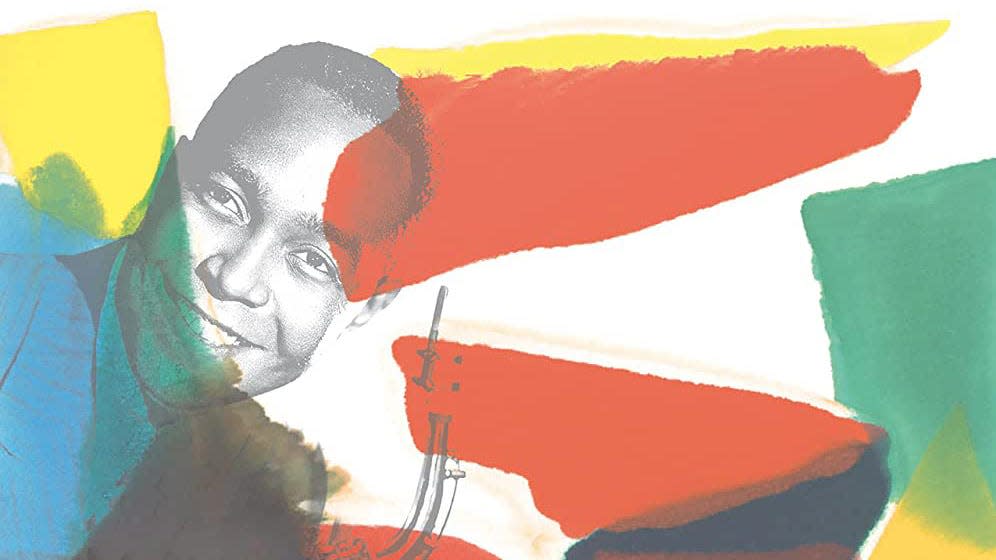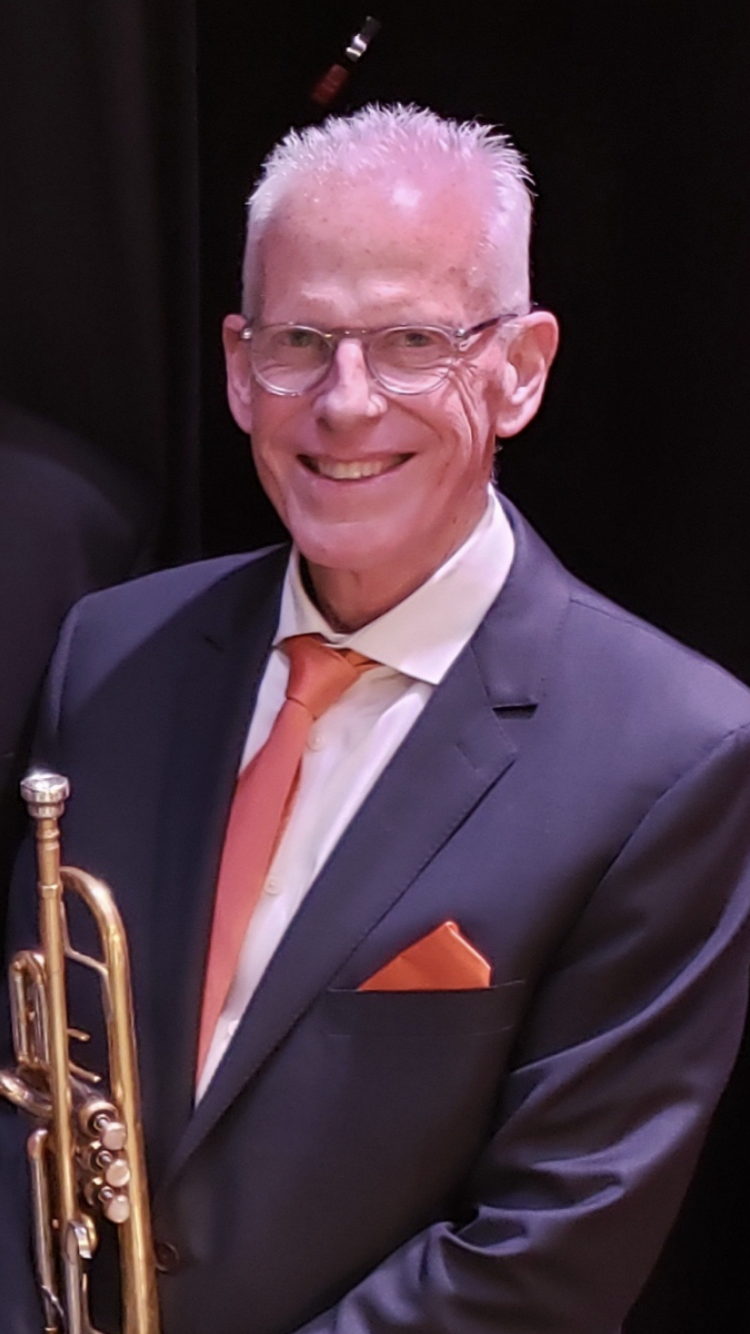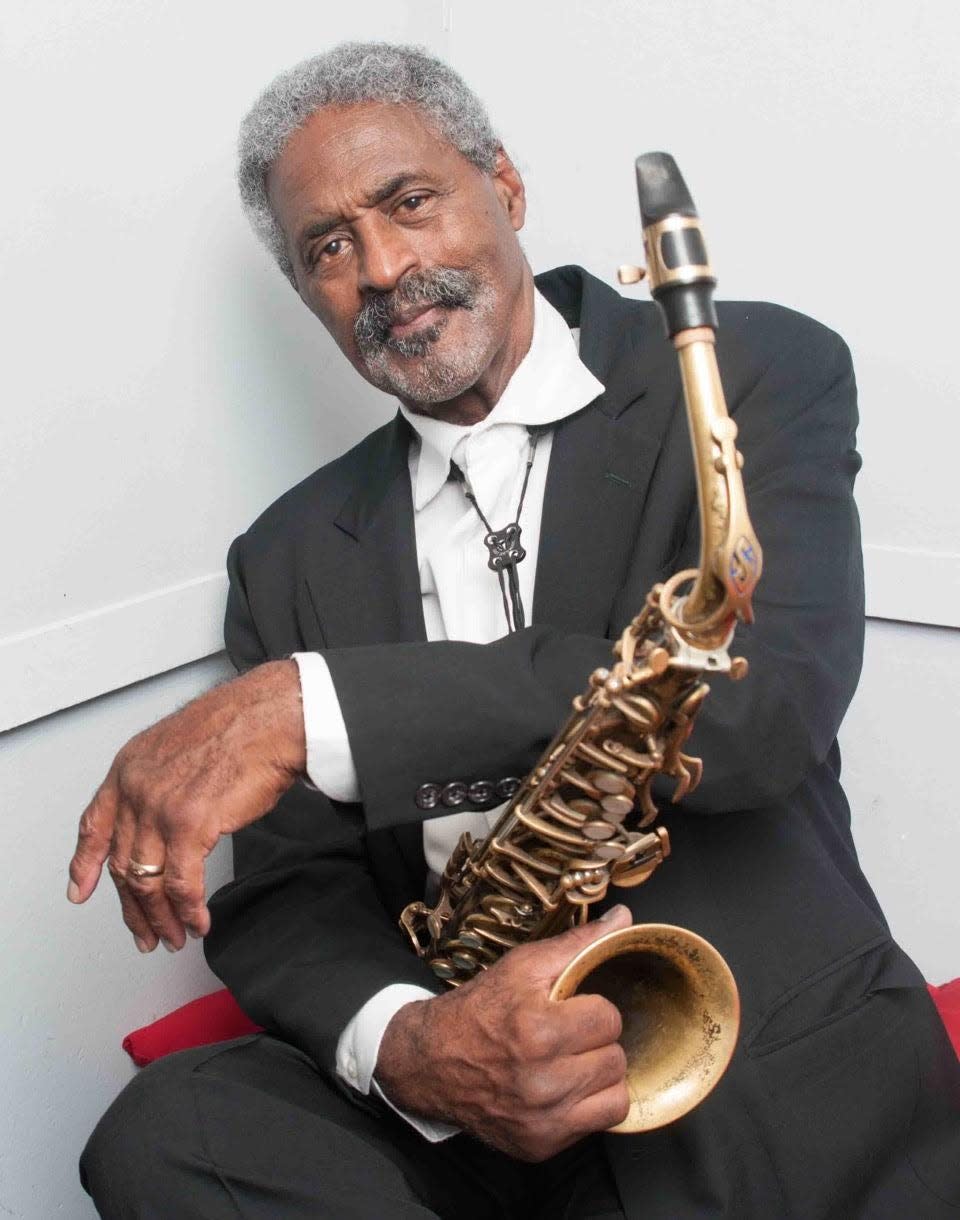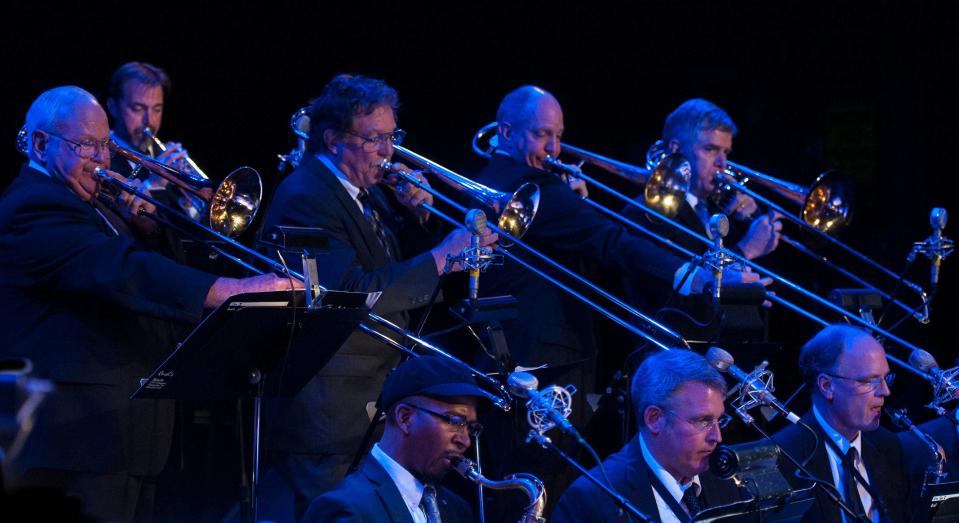Now's the time: "Bird Lives"

- Oops!Something went wrong.Please try again later.
What is very likely to be the jazz event of the year in Knoxville is not happening at the Big Ears Festival. “Bird Lives” is a concert that celebrates an American legend, the music of supernova saxophonist Charlie Parker, with illuminating new arrangements by the incomparable composer, conductor, and pianist John Beasley.
Coming two days after Big Ears vacates Gay Street, this show at The Bijou on Tuesday, April 4, features the venerable saxophone master Charles McPherson fronting the equally stellar Knoxville Jazz Orchestra, with John Beasley conducting. And the icing on the cake is Oak Ridge’s adopted claim to fame, Jim Hynes on trumpet.

Like the Big Ears concert of jazz guitarist Bill Frisell’s compositions arranged for orchestra by his long-time mentor Mike Gibbs, which was performed by Frisell and the Knoxville Symphony Orchestra at the Civic Auditorium Thursday night, “Bird Lives” had its start with the SWR Big Band in Germany, a group many consider the single most adventurous jazz ensemble in the world.
Founded in Stuttgart 72 years ago, when Charlie Parker was 33 and Frisell was 2, the SWR Big Band has a trans-Atlantic reputation for being remarkably prolific, highly skilled at collaborative recording projects, and, as performers, just as polished and sharp as can be.

So when Beasley decided to mark Parker's 100th birth anniversary in the most fitting way possible, he took his ideas to Stuttgart. And after a handful of Grammy nominations without a win, SWR finally hit the jackpot this year with “Bird Lives,” the album of Beasley’s landmark new charts of a tragically short-lived artist’s ideas - ideas which changed jazz, and American music writ large, forever.
The concert by the KJO and McPherson will be the premiere live performance of the album in the United States.
The life of Charlie Parker
Parker’s life was brief and tragic, but his music is very much alive. How does that sort of trade-off happen? What kind of bargain is struck to result in that net gain? It’s a story that recurs every generation somehow. Robert Johnson. Janis Joplin. Gram Parsons. Amy Winehouse ...
Parker came up out of the Dust Bowl days and the Great Depression. At 16, a car wreck en route to a gig in the Ozarks left him addicted to opioids. He struggled in his last 10 years of life with depression and other expressions of mental illness, until finally, 68 years ago, he succumbed to the weight of it all. The coroner’s report estimated Parker’s age to be between 50 and 60. He was 34.
In the fall of 1949, three years before I was born, Parker recorded an album with producer Norman Granz, whose body of work towers over the jazz world. It was a record that gave rise to a hybrid called Third Stream jazz, essentially a marriage of jazz and classical forms. The album, “Charlie Parker With Strings,” included Vernon Duke/Yip Harburg’s “April in Paris,” a tune that was a central motivation to me when I was touring Europe with MOMIX in the 1980s … not just the tune, but Parker’s version of it.
MOMIX performed at Théatre de la Ville in Paris for several weeks in April 1984, in a twin bill with the shocking Japanese dance group Sankai Juku. I was quite taken by a stunning young woman who was the sound engineer for our performances. Her name was Françoise Morieux, and “quite taken” doesn’t really describe her effect on me. I was head-over-heels in love, but she was married, a new mother of a baby girl, and her husband was a stagehand at the theater. So we kept our distance, but that didn’t keep us from saying what we wished could happen. And “April in Paris” played on my Walkman nonstop.
Like Parker, François’ husband was a heroin addict. She and I never saw each other again after April 1984, but we stayed in touch. We exchanged notes for almost two years until she wrote that she, her husband, and their daughter were all sick with a strange new illness called SIDA (AIDS). Not long after that, her postcards stopped. I sent letters to the theater, desperate for news about her, and eventually the theater’s director wrote back to tell me my friend was dead. Her husband had died first, at the end of March. Two weeks later, the baby died. Françoise passed away the next day. And “April in Paris,” Parker’s “April in Paris,” became holy to me.
“I never knew the charm of Spring / Never met it face to face / I never knew my heart could sing / Never missed a warm embrace / Till April in Paris / Whom can I run to? / What have you done to my heart?”
“Charlie Parker With Strings” and its Third Stream melding of jazz and classical vocabulary paved the way for Frisell’s trio to front the Knoxville Symphony Orchestra. It paved the way for Greg Tardy’s TenTet to present “Pilgrim’s Progress” with the Oak Ridge Symphony’s new conductor leading a mixed ensemble of jazz giants and orchestral stars. And it paved the way for the KSO to take on “The Blue Hour” and “Cycles of Life” with complete confidence.
Because that’s what “Bird Lives” means: the legacy of Parker’s brief and tortured life is the sound of falling barriers and the thrill of musical invention. A cat who played the horn like no one had heard before, who invented a technique for soloing that blew the other cats’ minds, is the impetus, acknowledged or not, behind four of the most daring events at Big Ears 2023, almost 70 years after his premature death.
I love this stuff. These connections. Why was Charlie Parker called Bird? Why did the chicken cross the road? Answer: to give a cat an immortal nickname.
Come celebrate John homage to Bird at The Bijou on April 4. It’s a concert you’ll always remember.

Note: For the most reliable and up-to-the-minute info on the Big Ears Festival's hundreds of happenings, it's best to download the free Big Ears app to your phone.
John Job is a longtime Oak Ridge resident and frequent contributor to The Oak Ridger.
This article originally appeared on Oakridger: Now's the time: "Bird Lives"

